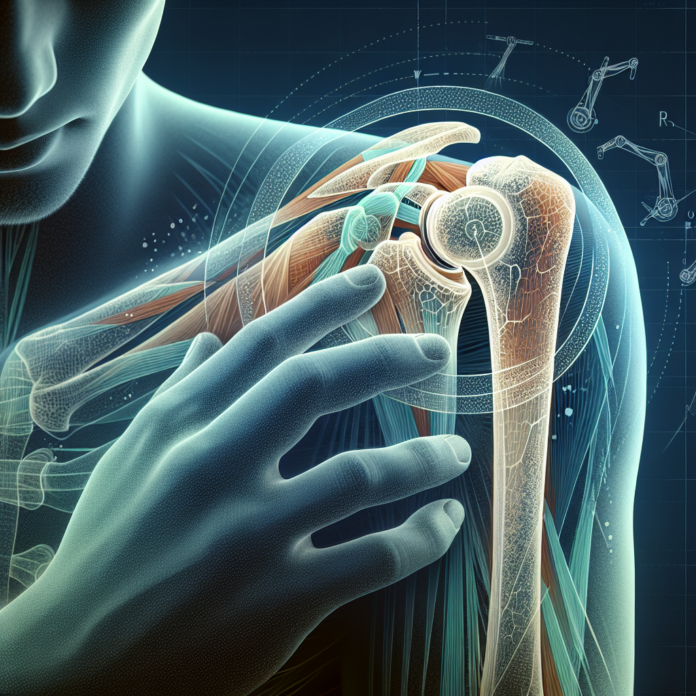Facing a shoulder dislocation can be a daunting experience, leaving you questioning whether your shoulder will ever feel “normal” again. It’s a common concern for many individuals, especially when considering the path of recovery with or without surgery. As Dr. David Guyer, a triple board-certified orthopedic surgeon and sports medicine specialist, explores in his Ask the Doctor series, there are distinct pathways and outcomes to consider. Whether you’ve undergone surgery or are contemplating it, understanding how each option affects shoulder stability and function is crucial to making informed decisions about your healing journey. Dive into this blog as we unravel the complexities of shoulder dislocation recovery, uncovering insights that could help you regain control and achieve optimal performance.
The Non-Surgical Route
For individuals who decide against surgery, shoulder instability can remain a persistent issue. This instability often manifests as recurrent subluxations or even full dislocations, especially in younger individuals in their teens or twenties. While physical therapy and strengthening exercises can help stabilize the shoulder, these methods may not fully restore that “normal” feeling.
Recurrent instability can alter daily activities, leading to discomfort and apprehension during shoulder movements. In some cases, surgery becomes a necessary course of action to regain a stable and functional shoulder.
The Surgical Pathway
Opting for surgery generally offers a better prognosis for feeling “normal” again. When performed successfully, surgery can significantly reduce the risk of recurrent instability, providing a stable environment for the shoulder joint. This stability allows many individuals, including athletes, to return to their previous levels of activity, sometimes even reaching or surpassing their pre-injury performance levels.
However, it’s important to note that surgery is not without its potential drawbacks. Some patients may experience a loss of range of motion, particularly in external rotation. This is often due to the tightening of the anterior capsule and repairs made to the anterior and inferior labrum during surgery. Physical therapy plays a crucial role in restoring range of motion and strength, which is essential for optimal recovery.
Key Factors Influencing Recovery
- Age: Younger individuals tend to experience more frequent recurrent dislocations if not surgically treated.
- Activity Level: Athletes and individuals with physically demanding jobs may have higher expectations for shoulder function, influencing their decision towards surgical intervention.
- Type of Dislocation: The severity and nature of the dislocation (anterior vs. posterior) can impact the decision for surgery and the recovery process.
- Commitment to Rehabilitation: Successful recovery often depends on dedication to rehabilitation exercises and physical therapy.
The Role of Physical Therapy
Physical therapy is a cornerstone in both non-surgical and post-surgical recovery. It focuses on:
- Strengthening the Muscles: Building the rotator cuff and scapular stabilizers to improve shoulder stability.
- Improving Range of Motion: Techniques to gradually restore movement, particularly in external rotation after surgery.
- Enhancing Functionality: Custom exercises tailored to the individual’s activities and goals to ensure the shoulder can handle daily and sports-related tasks.
Personal Experiences and Professional Guidance
While medical advice should always be sought from a healthcare professional, personal experiences can offer valuable insights. Sharing recovery stories and challenges can provide support and realistic expectations for others facing similar situations.
Dr. Guyer emphasizes the importance of exploring all options, including non-surgical treatments and alternatives to cortisone shots, for those hesitant about surgery. His eBook, “The Arthritis Solution,” provides further resources and guidance for individuals seeking to explore a holistic approach to their orthopedic health.
Conclusion
In summary, whether your shoulder ever feels completely normal again after a dislocation varies from person to person. Surgical intervention generally offers a higher probability of a stable, functional shoulder, though this comes with its own sets of challenges, such as potential motion limitation. Those who avoid surgery may face ongoing instability issues, but targeted physical therapy can help manage and improve their condition.
The decision regarding surgery should be made with careful consideration of one’s lifestyle, activity goals, and discussions with a qualified orthopedic specialist. Remember, each case is unique, and recovery is a personal journey shaped by multiple factors. Being proactive and informed are key steps in regaining control over your shoulder health and overall well-being.
Curious if your shoulder will ever feel normal after dislocation or surgery? Explore recovery options and outcomes with insights from Dr. David Guyer, orthopedic expert.
